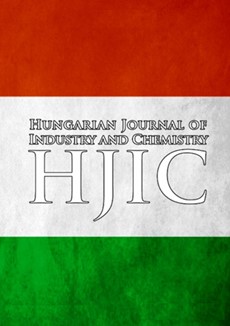Reduced aromatic jet fuels
DOI:
https://doi.org/10.1515/458Abstract
At present time growing demand and more sever quality specifications are observed for the jet fuels. The reasons of these are the growing aviation and the more conscious environmental requirements. The expansion of aviation featured the last two decades, especially the 2% at the beginning of the reviewed period approaches15%, if we calculate in the point of passenger kilometers the driven passages with vehicles, buses, railroads and jets. It can not be left from focus that aviation generates only 2% of the CO2 emission of the world. This value can grow only for 3% to 2050, moreover it generates 12% of the CO2 emission of the full transportation section, for comparison the public way transport generates 76% of the CO2 emission. One of the greatest problems is the jets that fly at one time more than 1500 kilometers, because aviation produces 80% of the greenhouse gases. But there are no other alternatives for bridging these distances in the transport section. The quality of the jet fuels is improvable with reducing their sulphur- and aromatic content. The hydrogenation of the aromatic content of the jet fuels to naphtenic hydrocarbons can produce products that are environment-friendly, they have high energy content, lower density, which contributes to satisfying the growing demands. Our aim was to study the possibilities of producing low sulphur and aromatic content jet fuels in a catalytic way. On a transient metal catalyst we studied the possibilities of quality improving of Russian crude oil based petroleum fraction depending on the change of the operating parameters (temperature, pressure, liquid hourly space velocity, volume ratio). With 1800 mg/kg sulphur content petroleum on the NiMo/γ-Al2O3 catalyst we carried out the experiments at 200–340°C, 20–50 bar pressure, 1.0–3.0 cm3/cm3 h liquid hourly space velocity and 200-400 Nm3/m3 hydrogen/hydrocarbon ratio. Based on the quality parameters of the liquid products we found that we madefrom the Russian based petroleum in the adequate technological conditions products which have lower sulphur content than 10 mg/kg and which have reduced aromatic content, so these are excellent jet fuels, and their stack gases damage the environment less. We blended bioparaffins to the productsof the catalytic experiments. We reached productswith lower aromatic content than 5%.Downloads
Published
2011-09-01
Issue
Section
Articles
How to Cite
Reduced aromatic jet fuels
. (2011). Hungarian Journal of Industry and Chemistry, 39(3), 413-418. https://doi.org/10.1515/458




